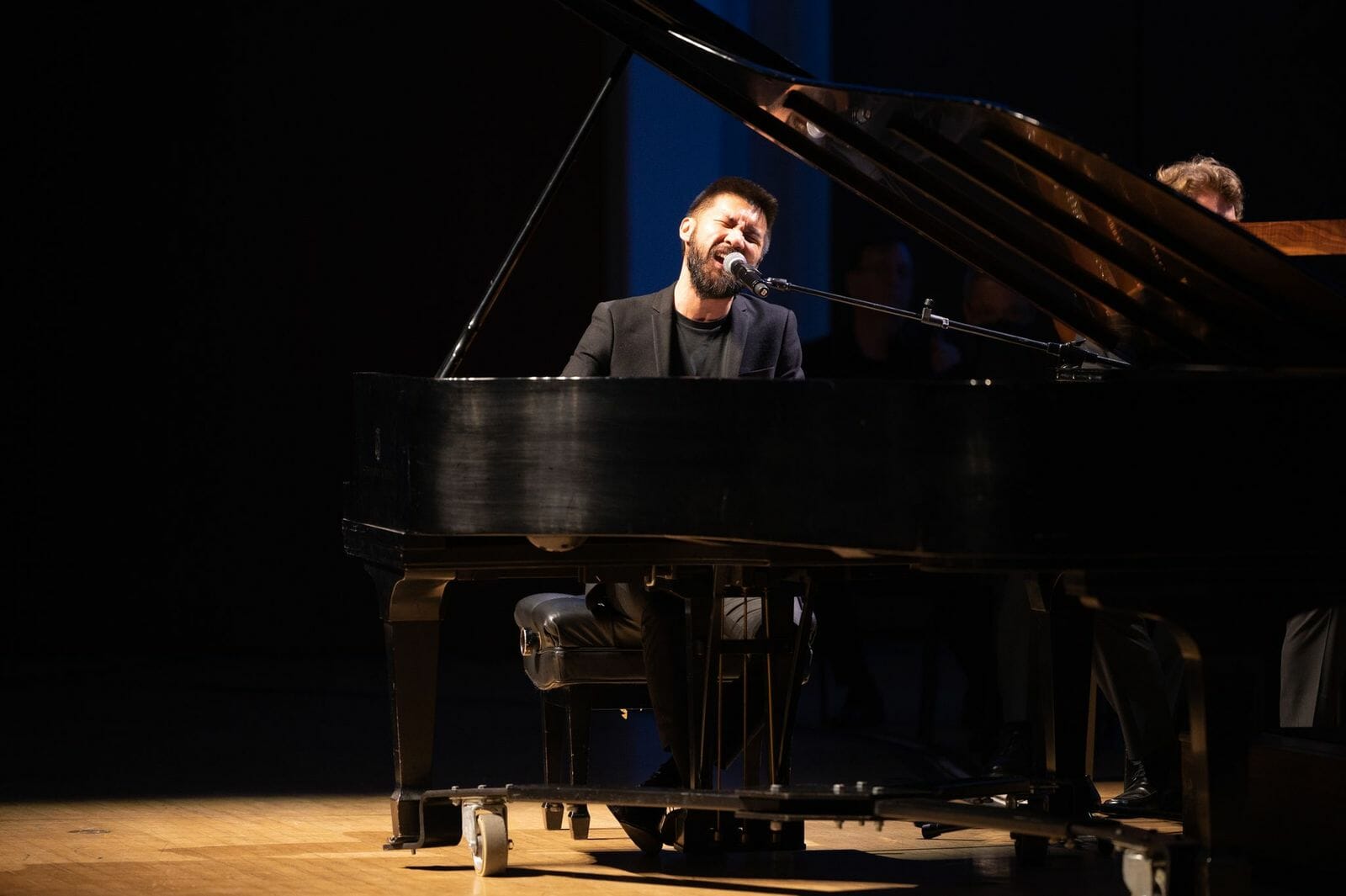While the well-oiled machine that is the Atlanta Symphony Orchestra has no doubt been firing on all cylinders since the arrival of Nathalie Stutzmann, the performance Thursday still managed to be a high point of the season. It was an evening of high risks and high rewards as guest conductor Roderick Cox stepped in to fill the shoes of scheduled conductor Ryan Bancroft, who had to cancel due to illness.
Cox’s conducting, coupled with an appearance by piano virtuoso Conrad Tao and a performance of William Dawson’s much lauded Negro Folk Symphony, made for a captivating night to say the least. The program repeats tonight (Friday) at Symphony Hall.
A native of Macon, Cox found his first job as assistant conductor for the nearby Alabama Symphony. He has since amassed an impressive resume for a man so young, having already won the prestigious Sir Georg Solti Conductor Award from the U.S. Solti Foundation in 2018, as well as the Robert J. Harth Conducting Prize from the Aspen Music Festival. He has made recent debuts with the Boston Symphony, New World Symphony and Orchestre de Paris among many others. But the question remained: could he come in at the last minute, command an orchestra and deliver sublimity?
The evening had originally called for Bancroft to conduct Zoltán Kodály’s Háry János Suite. Cox substituted Pyotr Ilyich Tchaikovsky’s Romeo and Juliet (Overture-Fantasy). It is a work that leans heavily on the strings, a formidable forte of the ASO. As the work moved into its familiar themes and cadences the balance in the sound was striking, the result of a deeply cohesive ensemble and one that melds together with an almost telepathic sense of cohesion. Throughout the grandiosity of the piece itself there was never a sense of any one section overplaying. The ensemble as a whole had a deft capacity to ebb and flow in and out of one another as moments to feature various instruments presented themselves.

For his part, Cox was instantly in his element. He was a remarkably dynamic and daring presence on stage and displayed a captivating sense of confidence. To the uninitiated, it would hardly be readily apparent that he was merely a substitute. His emotive physicality played into the enthusiasm of the piece, but those larger motions were balanced by some extraordinarily intricate baton work. Most conductors play to one extreme or another, but Cox showed a remarkable capacity to encompass the full gamut of possibilities.
The ASO under the commanding presence of Cox alone would have made the evening worthwhile but the night was soon dominated by the terrifying virtuosity of pianist Conrad Tao.
I was in attendance for the world premiere of Tao’s violin concerto in 2021, and found his compositional work to be enjoyable if occasionally wandering in its focus. Tao’s mastery of the piano, however, is another matter.
Performing Maurice Ravel’s iconic Piano Concerto in G Major, he blasted through a series of technically brutal passages with effortless ferocity that brought ravenous applause from a captivated audience. Tao also is a consummate showman, occasionally rising from his seat or accentuating particularly demanding passages with the kind of exaggerated body language that evokes images of a manic mad scientist. He is, in all capacities, a highly-charged entertainer.
Tao returned to the stage for a surprise encore — a performance of “Lush Life” by Billy Strayhorn. The worlds of jazz and classical are often mutually reticent tribes, each rife with thought leaders that consider the two styles wholly incompatible. But both Strayhorn and his patron and mentor, Duke Ellington, crossed over into orchestral music. Tao delivered a gorgeous rendition of the jazz standard on solo piano with his own gentle voice carrying the melody. By the time he concluded, the delicate encore there could be no doubt that the night belonged to him.

The third and final piece of the evening was William Dawson’s Negro Folk Symphony, a work which, as the name implies, is built around the heritage of Black America through its many seasons of hardship, oppression and achievement.
The work as a whole — much of which was displayed in a beautifully curated arrangement in the Woodruff lobby — is one of high intensity with Dawson going full speed ahead from the outset and seldom pausing for moments of calm or reflection. It is a beautifully intense work that is unafraid to make its points with a sledgehammer and a harrowing but rewarding experience provided the listener is unafraid of feeling blown away like the character from the old Maxell tape commercials.
Taken as a whole the evening was a night of exciting highs and wonderful surprises. It’s concerts like these that make the ASO a commanding presence on the world stage.
::
Jordan Owen began writing about music professionally at the age of 16 in Oxford, Mississippi. A 2006 graduate of the Berklee College of Music, he is a professional guitarist, bandleader and composer. He is currently the lead guitarist for the jazz group Other Strangers, the power metal band Axis of Empires and the melodic death/thrash metal band Century Spawn.

